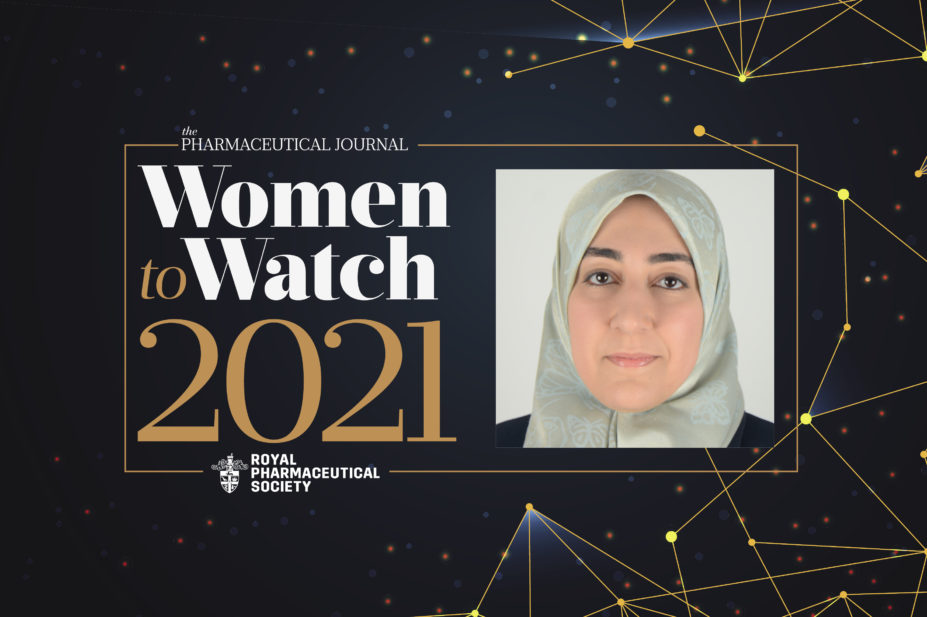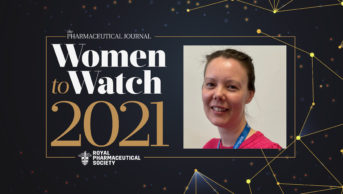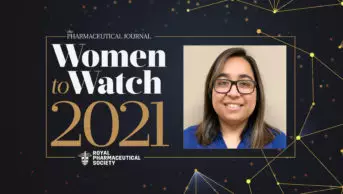
Noma Al-Ahmad / Shutterstock.com
The seeds of what came to be Noma Al-Ahmad’s mission in life were sown right at the start of her career, with a disastrous preregistration placement in an independent pharmacy.
“It was a bunch of lies and they weren’t at all committed to training,” says Al-Ahmad.
After months stuck doing nothing but dosette boxes, she was offered little help by the then Royal Pharmaceutical Society of Great Britain. She tried to seek out an alternative, but no one was interested. It is very difficult for trainees in that position, says Al-Ahmad, “you are sort of blacklisted”.
Eventually, her persistence paid off and she was able to complete her training at another pharmacy, but the experience stayed with her. Adamant that no other trainee should go through the same ordeal, she made it her goal to drastically improve the training on offer.
After qualifying, she founded ProPharmace in 2006, now one of the leading pharmacy training providers in the UK. Almost 15 years on, it has grown from an initial cohort of 20 trainees to now having 500 trainees per year, providing courses on how to set up a vaccination clinic, mock exams and training for supervisors.
“The work she has done in the quality improvement of preregistration training has had an impact nationally in transforming the way that pharmacy managers develop and deliver their training programmes,” said her nominator.
In September 2020, her team won a contract from Health Education England (HEE) to train supervisors for the London and south east region. In March 2021, this was expanded further to the south of England.
We want trainee pharmacists to never experience what I had to
“If the supervisors know what they’re doing and can deliver effective training and be certified, the trainees are more likely to have a good experience,” says Al-Ahmad. “We want trainee pharmacists to never experience what I had to.”
She is aiming for the GPhC to make this training mandatory for all supervisors. At the moment, it is only mandatory for services commissioned by HEE.
As managing director, Al-Ahmad oversees a small team of ten in-house staff and around 30 trainers. The size of their business means they can be flexible, she notes. “We’re always trying to keep ahead of the game and adapt,” says Al-Ahmad. A perfect example was the sudden need to transition to online training from face-to-face sessions during the COVID-19 pandemic.
“When the GPhC announced their exams would go online it took a long time for them to announce it, but we had been ready for it and had prepared online mock exams in advance,” says Al-Ahmad.
ProPharmace also created a set of free training resources to help pharmacy teams and some universities got in touch to ask for support.
The programme is constantly evolving alongside the profession, she says, and recently there has been a lot of work to introduce the clinical skills sessions vital for the new foundation pharmacy programmes.
What sets Al-Ahmad apart, according to the person who nominated her, is how quick she is to reach out and support trainees in times of difficulty. She offers bespoke and free support to students where needed, including those who have had difficulties with visas and refugee pharmacists.
The impact of the work that has been done to date can be seen in the high pass rates of their trainees, she notes. “We also always take feedback after every single session so we can adapt,” she adds.
At the moment, Al-Ahmad’s focus is solely on the business, as well as her role as a visiting lecturer at King’s College London (KCL). She is working on training collaborations with several universities, including KCL, as they get to grips with the new foundation pharmacy programmes. “I would like to go back and do some work in pharmacy next year on a locum basis,” she says. “It is important to keep in touch. I plan to do my independent prescribing and go back into a different sector.”
Founding her own business has been a learning curve, she admits: “Throughout my career I’ve had men say we want to work with you because we think we can do it better and that has been a challenge for me to navigate. My advice to women who want to launch a business is to go for it and don’t be stopped by someone saying you can’t do it. It can be hard to be taken seriously but, for me, it is about integrity and setting high standards.”
Panellist comments
“Noma demonstrates that you can build on a passion for improving education and training and make a successful business.”
“What is inspiring is the added value that she puts into addressing issues such as the attainment gap for black pharmacists and supporting trainee pharmacists through one of the most challenging times in their career.”
“Very influential. The work she does is very important and necessary. Tangible results.”
Meet the rest of The Pharmaceutical Journal’s Women to Watch 2021 here
This entry was amended on 2 December 2021 to clarify that Noma Al-Ahmad says she was offered little help from the Royal Pharmaceutical Society of Great Britain, not the General Pharmaceutical Council


